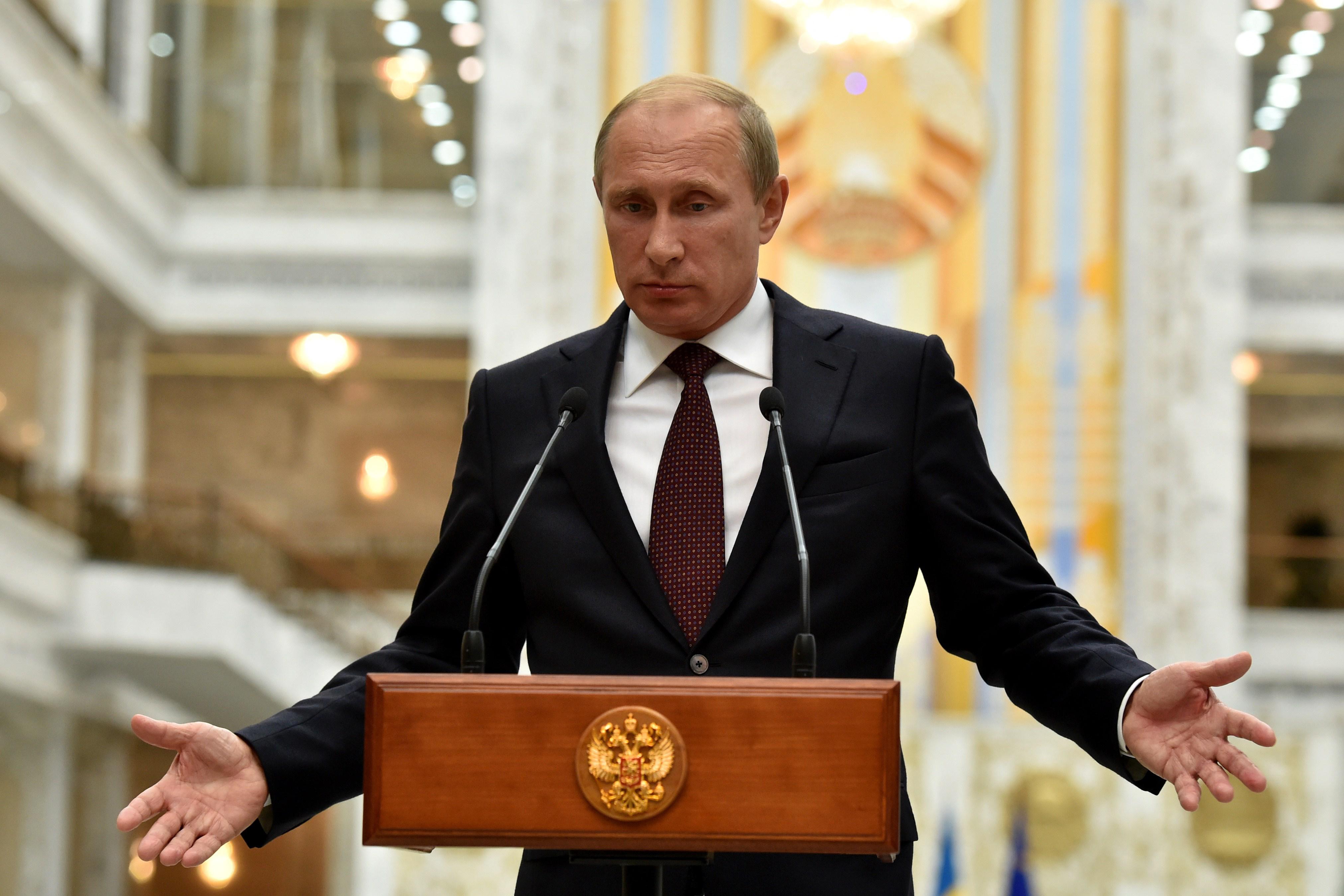I’m currently in Moscow thanks to a fellowship from the International Reporting Project at Johns Hopkins. I’ll be posting some lengthier dispatches from here in the coming weeks as well as keeping up the blogging on general world news.
The violence in Ukraine hasn’t entirely dissipated, but at the moment it seems to be in one of its periodic lulls, with most Russian troops believed to have withdrawn from the country. The Ukrainian government has ratified the trade agreement with the EU that set off this crisis in the first place, while agreeing to more autonomy for the country’s eastern regions and further talks with Moscow. In other words, after more than 3,000 deaths and 300,000 people displaced and the worst crisis in relations between Russia and the West since the fall of the Soviet Union, the two sides have reached a deal they probably could have reached a year ago.
As tragic and avoidable as it may seem from the outside, the Ukraine crisis has been great politically for President Vladimir Putin, whose popularity recently hit 87 percent, even amid rising consumer prices and a slumping economy caused by economic sanctions. It’s hard to remember now, but Putin’s ratings were at their lowest level since 2000 at the end of last year.
It’s too soon to say with any certainty that the crisis in Ukraine is over or even close to over, but if the Ukraine situation does start to fade into the background, it will be interesting to see whether the Russian government and Putin in particular will start to take some heat for the state of the economy.
As political scientists Graeme Robertson and Sam Greene noted on the Washington Post’s Monkey Cage blog a few days ago, Russian voters show a particularly strong rally-round-the-flag effect during national security crises, but the effect isn’t always long-lasting.
Denis Volkov, an analyst at the Levada Center, Russia’s largest independent polling organization, compared the current political situation to the last two major spikes in Putin’s popularity: in 1999, when a mysterious series of apartment complex bombings in Moscow prompted the Second Chechen War, and 2008, during the war with Georgia.
During the latter crisis, which also coincided with the lead-up to presidential elections, Putin’s popularity hit its record high of 88 percent in Levada’s tracking polls. “But it went down rather rapidly as a result of the global economic crisis, so we can compare it to this [current situation],” Volkov told me in an interview at Levada’s offices. “From 2008 to the end of 2011, Putin lost one-third of his supporters. The economic situation is also bad now, and sanctions will make it even worse. But there are some differences right now. The way state propaganda works now is very different from then.”
To that point, Volkov noted that Putin’s has consistently worked to consolidate control of the country’s television networks, where 95 percent of the public receives its information about the situation in Ukraine, according to Levada’s data. Just last month The Week, a news broadcast on a private network considered to be the last “alternative” news program on Russian TV, was finally canceled.
But even if Ukraine falls out of the headlines, it may not matter all that much for the president. For one thing, his floor is still pretty high. Even at his lowest point, Putin enjoyed a 61 percent popularity rating, a score President Obama (Gallup currently has Obama at a 41 percent approval rating) and most European leaders can only dream of matching.
Putin’s sky-high popularity won’t last forever—it’s already dipped a bit in the last few weeks—but his base is still probably broad enough and his opposition weak enough for him to not have to worry too much about popular disapproval.
Plus, there could always be a new security crisis on the horizon.
